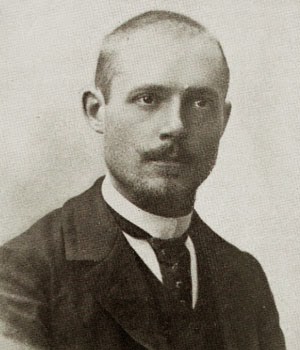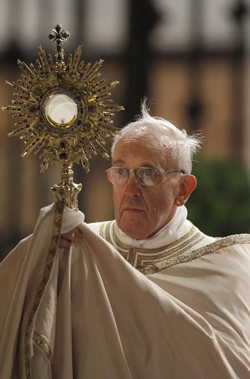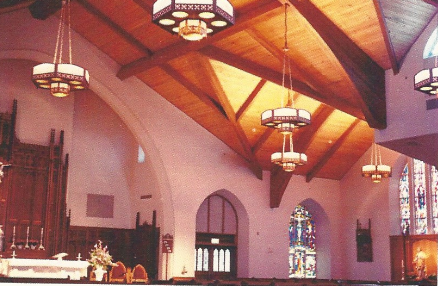When we look at the Feast of Corpus Christi, we can consider three types of Eucharistic love:
- Covenantal
- Incarnational
- Transformational

Covenant Eucharistic Love:
When I was in college, we once discussed a poem related to relationships between boy- and girl friends and commitment:
If you love something, let it go.
If it returns, it is yours.
If it doesn’t, it never was.
One young woman in the group said that the tightest chains of love that her boyfriend could place around her was her knowledge that she was free to leave any time. Theirs was a love freely offered, freely accepted. In his work God Speaks, poet Charles Péguy wrote the following that seems to reflect the young lady’s thought:
God willed not only to create the world, but to enter into relationship with it. God wanted the created world to know Him and God wanted, that creation would know God back. And so God created us with intellect and will, the two gifts that make a free act of love possible. We were endowed with the the ability to desire and choose to freely love another, and the ability to commit ourselves to another. Only in this way could creation then love God in return. After all the magnificence of mountains and depth of the seas, God wanted something else.
It was not power or might; It was not the submission of slaves; It was not the automatic response of robots. Much like the need of that college girl to feel her love was freely given and freely chosen, God wanted that creation could freely choose to love Him back - or not. It was free consent for those who choose it. This was the first kind of love - this was covenantal Eucharistic love.
And this is also the first reason to go to Mass - because God desires you to love Him back.
****************
What is the second kind of love? Jesuit priest Father John Foley, S.J. is a composer and scholar at Saint Louis University. He writes the following:
When you are hungry and you want, say, a hamburger. Does simply thinking about a hamburger do the job? Thoughts about hunger are internal, right? And that should be enough. No need for anything outside your imagination. Of course this is nonsense. Yes, we human beings have a spiritual “insides” and it is very important, but we have a physical INside - and a physical OUTside too! We are not built to just stay spiritually or emotionally within ourselves. Instead we are created to let our spirit walk, play, and even suffer out in the material world.
Human being are physical. How do we, as finite creatures, enter into covenant with an infinite God? Father Foley continues:
When Jesus ascended into heaven, he seemed to be leaving us behind without him. But he sent the Holy Spirit into the hearts of believers, so that Jesus would always be present to us. The celebration of Pentecost two weeks ago was the full expression of this fact.
Some churchless brothers and sisters would say: “See, the Holy Spirit of God dwells deep in the wordless depths of a person. We don’t need any organized religion. We don’t need any of this physical stuff. We do not need to go to Mass or attend any liturgy or be involved in any official religious ceremonies.”
Are they right? Not quite.
The Holy Spirit’s presence at the depths of our being makes us desire to discover Jesus with our mind and soul and heart and spirit but also with our eyes, ears, nose, tongue and hands.

This points to Incarnation and the importance of ritual, worship and the Eucharistic celebration of the Mass. Christ didn’t say, “come and dream” or “come and think” or “come and meditate.” Christ said, very clearly, “Come and eat.” “Taste and see.”
This is the second kind of love - this is incarnational Eucharistic love. And this is the second reason to go to Mass - because God’s love for us and our love for God is a spiritual - and physical - love.
We find the answer to our spiritual quest in the material, fleshly presence of Christ. In this deliciously physical ritual, we find the presence of God given to ALL of our senses in Communion, and our Spiritual and physical yearnings are both fulfilled (Foley).
****************
What about the third type of Eucharistic love?
The simultaneous fleshy-spiritual encounter with Christ leads to bodily and spiritual Transformation. Listen to what Pope Pope Francis said on the 2013 Feast of Corpus Christi:

What Jesus encouraged the disciples to do was an act of “solidarity,” … He asks us to place at God’s disposal, whatever little we have together with our humble abilities, because only in sharing and in giving, do our lives ultimately become fruitful…
In receiving the Eucharist faithfully the Lord leads us to follow this path - sharing, giving, serving. The little that we have, the little that we are, if shared, becomes a treasure because the power of God, who is love, descends into our poverty and transforms it.
This is the third kind of love - this is transformational Eucharistic love. 
And this is the third reason to go to Mass - because you can’t do this on your own. You can’t transform yourself. You need an outside source of love and power, to be received inside of you in order to transform you from the inside – out.

Audio version of the homily is here: